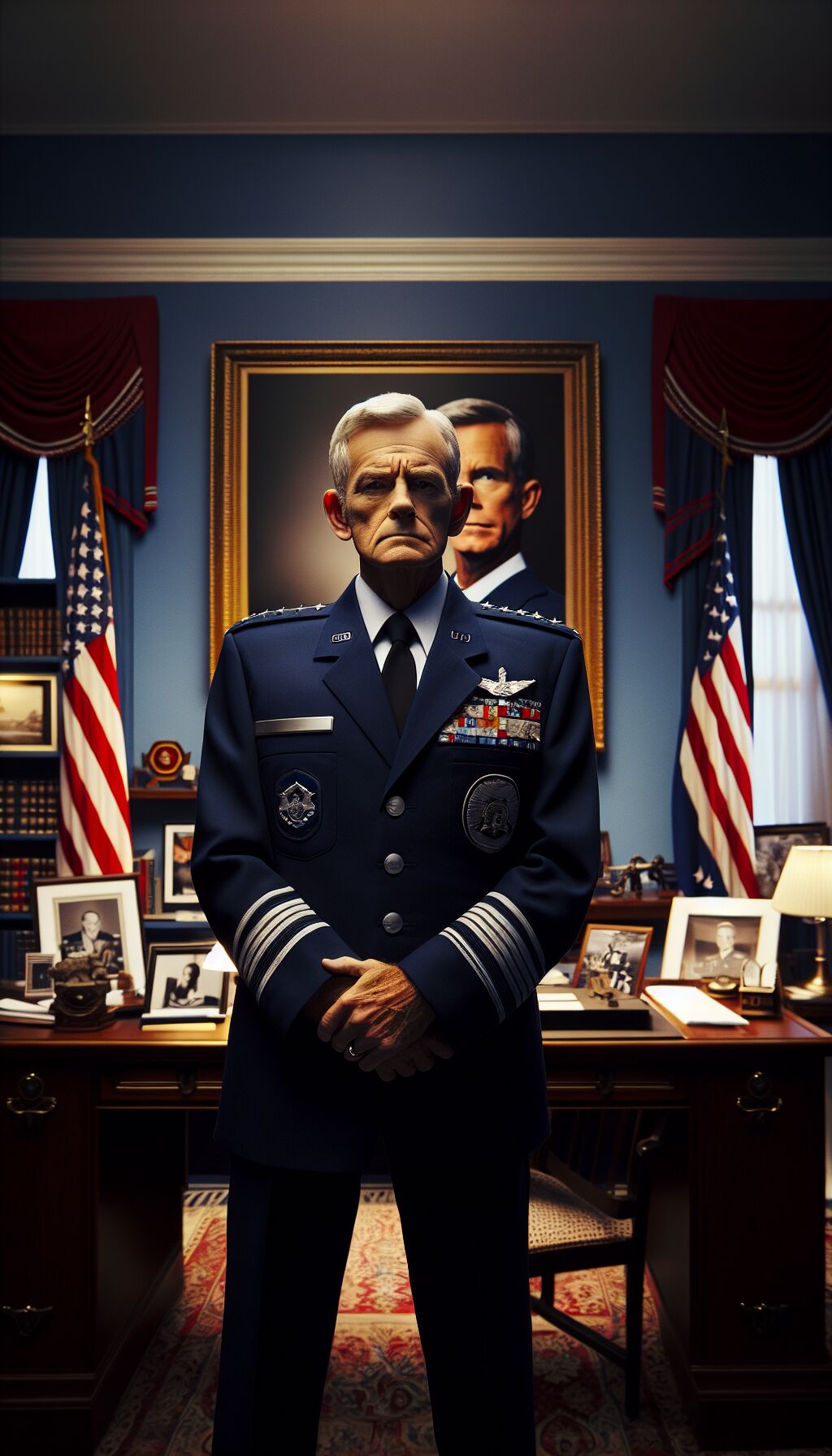Trump’s Overhaul of Military Leadership: A Dramatic Shakeup at the Pentagon
President Donald Trump has initiated a sweeping change within the U.S. military’s top leadership, notably removing multiple high-ranking officers, including Chairman of the Joint Chiefs of Staff, Air Force Gen. C.Q. Brown. This unprecedented decision has raised eyebrows and sparked debate regarding military governance and political influence in the armed forces.
Transitioning Leadership Roles
In a bold announcement on social media, Trump disclosed his intentions to replace General Brown and nominate retired Lt. Gen. Dan “Razin” Caine as the new chairman of the Joint Chiefs of Staff. This decision marks a significant historical moment as it is the first instance of a sitting president pulling a military officer out of retirement to fill such a prominent role.
In addition to Brown, Trump is also set to replace other key military leaders, including Adm. Lisa Franchetti, the first woman to lead a branch of the military, as well as Air Force Vice Chief of Staff Gen. Jim Slife. The replacements extend further, affecting the judge advocates general of the Army, Navy, and Air Force.
An Unconventional Strategy
Trump’s strategy appears to be influenced by a desire to pivot the military leadership away from initiatives he views as “woke.” His administration has openly criticized current military policies related to diversity and inclusion. These policies have led to accusations that they might overshadow merit-based promotions.
During his campaign, Trump often spoke against what he described as a “woke” agenda in the military, especially criticizing decisions surrounding the U.S. withdrawal from Afghanistan in 2021. His defense secretary, Pete Hegseth, has echoed these sentiments, questioning the motivations behind military promotions that emphasize diversity over military competency, a viewpoint that has already stirred controversy within the ranks.
Reactions from Military and Political Leaders
Following the announcement, several military and political figures expressed concern about the implications of such a drastic shift. General Brown, who has served for over four decades, was acknowledged by Trump as a “fine gentleman and an outstanding leader,” a sentiment that contrasts sharply with the notion of his dismissal being politically motivated.
The firing of Adm. Franchetti, who was appointed by former President Joe Biden, particularly stands out. This decision is seen as a stark reversal from Biden’s prior endorsement of Franchetti, sparking discussions about continuity and stability in military leadership during times of international strife.
Criticism of Political Interference
Senator Jack Reed, the top Democrat on the Senate Armed Services Committee, took issue with the firings, labeling them a political maneuver rather than a decision based on performance. Reed warned that such actions could undermine the trust and professionalism that military personnel rely upon for mission success. “Firing uniformed leaders as a type of political loyalty test… erodes the trust and professionalism that our service members require,” Reed stated.
This concern mirrors broader fears regarding the encroachment of political agendas on military operations, a topic often discussed in both political and military circles.
Implications for Pentagon Operations
Beyond the immediate shakeup, the Pentagon is preparing for significant changes, including potential mass cuts to civilian staff. As the Defense Department braces for these adjustments, the leadership changes introduce uncertainty at a time when military readiness and morale are essential.
As Trump reshapes the military’s leadership landscape, the consequences for both domestic and global military strategy remain to be seen. The outgoing and incoming leaders will undoubtedly face scrutiny as they adapt to their new roles under the evolving direction of the administration.
Looking Ahead
The White House has yet to respond to inquiries regarding the motivations behind these substantial leadership changes. As Trump moves forward with his military reforms, the balance between political influence and military integrity will be tested. Observers will be closely monitoring the impact of these leadership transitions on U.S. military operations and policies, particularly in an era marked by complex global challenges.










